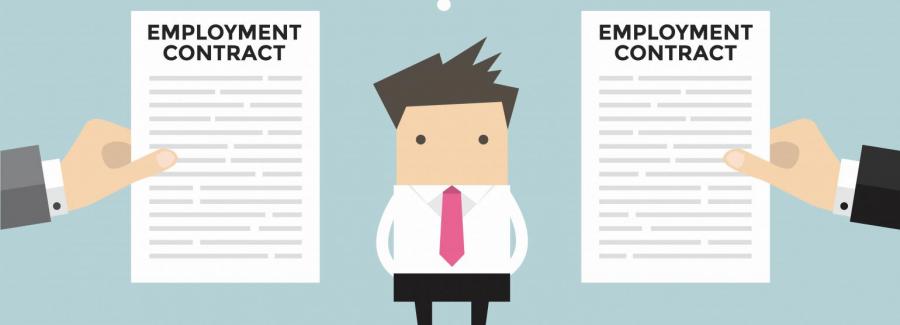
When looking for a job, most people cast a lot of lines. To increase your chances of getting hired you send out a lot of resumes, put in multiple applications, and if things are going well, go on at least a few interviews.
If that happens, and you have multiple irons in the fire, it’s possible you’ll get more than one job offer. That’s a problem of the best kind. It’s not fun to have to turn someone down, but you get a chance to weigh both offers against each other — and perhaps even engage in a bit of negotiating.
Picking one job over another is often not easy, in part because once you do, it’s easy to second-guess yourself. Still, if you follow a measured, reasoned approach, you should be able to reach the right decision.
Getting multiple offers is a reason to celebrate.
Congratulations
Before you work on solving your dilemma, take a step back and salute yourself for what you have accomplished. It’s not easy to get a job offer, let alone multiple offers.
Once you have done that, do a basic inventory. Are both offers the same? Does one clearly offer more money or a better job title? Is one company a safer bet for long-term success?
If the answer to any of these is clear, then you probably know which job to take. If it’s not, and the offers are similar, it’s time to dig in deeper.
How to decide
Make a pros and cons list for each job. Maybe the salary, benefits, and title are comparable, so go deeper than that. Does one company offer a better path toward promotion? Does one offer better secondary perks than the other? Consider ancillary factors like how long your commute will be and whether either job offers the ability to sometimes work from home.
If they are still tied and you have not made a decision, pick one of the jobs and tell the person making the offer your situation. Let them know you have another offer and that you are unsure. If there’s something specific you want (more money, an extra week of vacation) ask for it.
Should the employer sweeten the deal, accept the offer. If they don’t, it’s possible to try the same thing with the other company — but you do run the risk of alienating both potential employers.
Do this next
If neither company will offer more than their original offer, you still have to make a decision. One way to do that is to look into the paths of other people who once held the job you are being offered. Use LinkedIn to examine career paths and see if one company offers a clear edge over the other.
Should that fail to produce a difference, go over everything once again and make sure the offers and situations are truly equal. If that’s the case, just make a decision and politely tell the loser you were truly torn and that you hope to work together in the future.
Never look back
Once you make a decision, truly put it in your rearview mirror. It’s not productive to think “what if?” every time you hit a bump in the road.
Feel fortunate that multiple employers wanted you and be confident that you did all of your homework. After that, go forward in your career and do the best job you possibly can.


